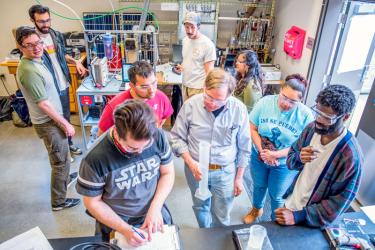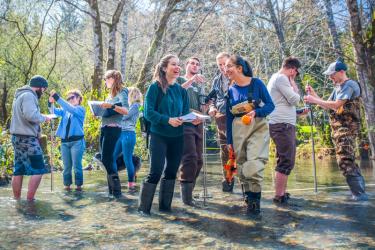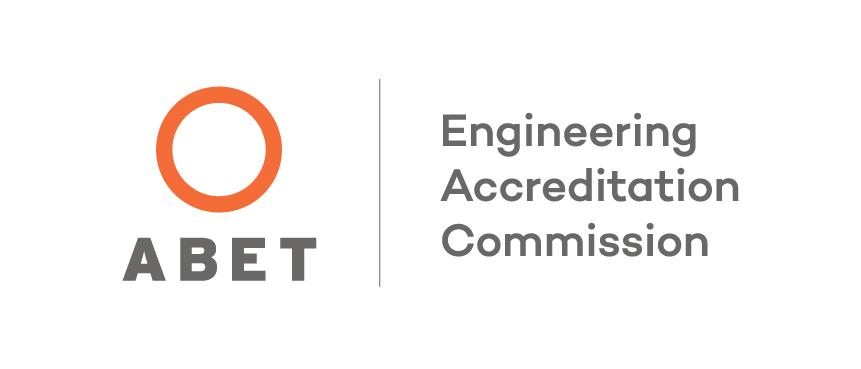Group Advising Sessions for ERE Students: Get Your S19 Registration Hold Removed!
The ERE faculty will hold two (2) group sessions for Spring ‘19 registration advising:
- Tues, Oct 30, 12:00 noon, Sci D 17 - targeted to upper division students taking 300- and 400- level classes next semester
- Thurs, Nov 1, 12:00 noon, Sci D 17 - targeted to lower division students taking 100- and 200- level classes next semester
Please be sure to check the “Advice for Spring 2019” document prepared by the ERE faculty (or read below) before meeting with your advisor—individually or at a group session—to be sure you come prepared.
Not sure who your major advisor is? Check in Student Center.
************************************************
Advice for Spring 2019
This email has advice for how to make good progress through the ERE major. Read carefully all sections that pertain to your situation.
Prepare for Advising
Your advising hold will not be released unless you have planned three semesters into the future via your DARS Plan. You are strongly encouraged to plan your courses until graduation; however, you must have your courses planned through Spring 2020 in order to have your hold released.
Please keep Tuesday & Thursday Clear at noon
ERE students, staff and faculty are busy people so it is hard to find common times to meet. The spring schedule has no ERE classes scheduled at noon on Tuesdays and Thursdays to more easily facilitate meetings within the ERE community. So, if you can, please avoid scheduling any other classes at noon so that you are available to participate in ERE community events scheduled at these times (e.g. possible club meetings on Tuesdays and on Thursdays: professional development workshops and panels, and presentations from outside professionals or from ERE community members).
Group Advising Sessions
If you were able to pass all your classes last semester AND you do not need to meet privately with your advisor, you are welcome to come to group advising
- 300-400 level students - Tuesday, October 30, 12 noon to 1pm, SD 17
- 100-200 level students - Thursday, November 1, 12 noon to 1pm, SD 17
Please try to register for your classes ASAP. If a class seems full, please contact the instructor and request to be put on the waitlist as there are likely seats available. The instructor will distribute permission numbers to students after Thursday, November 15, giving priority to students who have the fewest remaining classes to graduate. Even if you do not get into the class in November, be sure to check back again in January. Many classes that had waitlists in the previous semester, do not remain full after the first week of the semester.
Your email request for a permission number or to get on a wait list must include:
○ A PDF of your DARS
○ A PDF of your updated DARS Plan with at least three semesters into the future completed, but preferably your entire plan is completed and updated.
○ An explanation of why you are requesting a permission number or to be put on the waitlist. Explain why you already do or do not have the prerequisites.
○ An indication of the number of ERE required courses you have left to take after completing this Fall 2018 semester, and the semester you plan to graduate.
We have about 40 students graduating this Spring. We want to make sure all graduating seniors are able to take the courses they need to graduate. Please see specific comments below.
What if a class fills up?
If you try to register for a course, and it seems to be full, then ask to be put on the waitlist and request a permission number from the instructor using the instructions at the top of this page.
If you were planning on taking ENGR 115 Introduction to Environmental Engineering in Spring 2019, the course will not be offered this spring….
You MUST take ENGR 115 in Fall 2019. You will have priority registration before all the new incoming students. If you need to take a course that has ENGR 115 as a prerequisite, then you should email the instructor for a permission number. Be sure to follow the instructions provided above. Be sure to explain that you had planned on taking ENGR 115 in the spring, but you were unable to do so.
Design Electives will have some open spaces and some waitlist spaces.
According to the DARS Plan data, there should be plenty of seats for the four design electives that will be offered this spring.
The following design electives will be offered with the following number of (open) and [waitlist] spaces:
- ENGR 418 Applied Hydraulics (18)[6]
- ENGR 435 Solid Waste Management (18)[6]
- ENGR 473 Building Energy Analysis (32)[4]
If you have the prerequisites for a design elective and open spots remain, you do not need a permission number. Once the open spots have been taken, be sure to request to get on the waitlist by requesting a permission number using the instructions above.
PHYX 211
The physics department is offering two labs of this class. The Wednesday 2-5 lab will have spaces saved for ERE students. Please be sure to contact the instructor if the Wednesday 2-5 lab seems full.
ENGR 351
This course will have 16 open spaces in each lab and 2 waitlist spaces in each lab. If you have the prerequisites for this class and open spots remain, you do not need a permission number. Once the open spots have been taken, be sure to request to get on the waitlist by requesting a permission number using the instructions above.
ENGR 440
This course will have 20 open spaces in each lab and 2 waitlist spaces in each lab. If you have the prerequisites for this class and open spots remain, you do not need a permission number. Once the open spots have been taken, be sure to request to get on the waitlist by requesting a permission number using the instructions above.
ENGR 435
ENGR 435 (Solid Waste Management) will be offered in Spring 2019 for the first time in many years. As we update the course, we plan to eliminate the ENGR 330 (Materials) prerequisite for future offerings, and so will not enforce this prereq for Spring 2019. However, until we're able to update the Humboldt course catalog to reflect this change, students who have not taken ENGR 330 will need to get a permission # from the instructor in order to register for ENGR 435. To obtain a permission number for this course, please follow the instructions above.
Following are the ENGR 435 prerequisites that will be enforced for the Spring 2019 offering: CHEM 110, ENGR 313 (may be taken concurrently), and ENGR 333.
ENGR 481 Wastewater Engineering
This class will be taught by Brad Finney and will require instructor approval because the computer database is not set up properly to check prerequisites. The prerequisite is ENGR 416, which may be taken concurrently. To obtain a permission number for this course, please follow the instructions above to request a permission number and send your request to Beth Eschenbach, who will manage the permission numbers with Brad Finney. Permission numbers will be distributed using the process described in the FAQ below.
ENGR 492 Capstone
Capstone will only be offered to students who are graduating in Spring 2019 and to a few students who are graduating in Fall 2019. There are two sections of the course. Each section will have 20 open spaces and 4 waitlist spaces. If you have the prerequisites for this class and open spots remain, you do not need a permission number. Once the open spots have been taken, be sure to request to get on the waitlist by requesting a permission number using the instructions above.
FAQ – Can I take a 4th design elective?
Some ERE seniors are interested in taking a 4th design elective. Please do NOT sign up for a 4th design elective until the week before the spring semester. We want to be sure that all ERE students get a chance to sign up for classes they need to graduate. Please note that almost every semester there end up being extra spots in classes if you wait until the end of the first week of the semester.
FAQ – How does ERE Manage Waitlists?
Each semester, a Google Workbook is shared by ERE faculty with each tab representing the waitlist for each course. The waitlist for each course is available for ERE faculty to review. Faculty note if the prerequisites have been met and how many courses and semesters remain before graduation for each student on the waitlist. Students with completed prerequisites are prioritized by how close they are to graduation, with the closest ones receiving highest priority. (Students who are equally close to graduating are added in the order in which their requests were received.) GPA is not used to decide students who have prerequisites who gets into a class. This approach is used so that the same criteria are used for deciding which student is let into a class with a waitlist.
Challenging Four Year Graduation Plan
The ERE faculty has put together a suggested schedule for completing the ERE program in 4 years. Please note that many students take longer than 4 years, as they are not able to successfully complete the suggested number of units each semester. Many students must work outside of school, have family responsibilities, or for some other reason must take a lower unit load.
Advice for Students with 0-30 Engineering Units
- The ERE Curriculum meets the following General Education (GE) requirements:
○ Lower Division Area A Communications - So ERE students are not required to take COMM 100.
○ Lower Division Area A Critical Thinking - So ERE students are not required to take Logic, Critical Thinking, Critical Writing, etc.
○ Three Lower Division Area D elective - So ERE students need only take the Institutions courses.
○ Area E GE Human Integration - So ERE students are not required to an Area E GE (400) course.
- Additional GE Considerations:
○ Engineering majors need only one Area C Upper Division GE course and one Area D Upper Division GE course of the Upper Division GE Component.
○ You can plan your GE courses to simultaneously fulfill your Diversity and Common Ground (DCG) requirements by choosing lower division Area C or upper division Area C or D courses that are also Diversity and Common Ground courses. For example: Women, Culture, History (WS 107) fulfills 3 units of the Area C Lower Division requirements, while also counting for 3 units of the Diversity and Common Ground (Domestic) requirements. And Global Awareness (GEOG 300) fulfills 3 units of the Area D Upper Division requirements, while also counting for 3 units of the Diversity and Common Ground (Non-Domestic) requirements. For complete and current information on Area C and D courses that may double count for DCG requirements, see the Humboldt catalog
- Take a math class every semester ("Every semester you don't take math is a semester you'll be here longer." ---- Professor Elizabeth Eschenbach).
- Start the engineering science series as soon as you can if you want to avoid hold-ups in your progress through the curriculum. Start ENGR 210 Statics as soon as you have completed the math prerequisite, then plan on taking ENGR 211, then ENGR 331 and then ENGR 333 in subsequent semesters.
- Consider a minor in another area. Environmental Resources Engineering graduates have earned minors or certificates in areas including Mathematics, Chemistry, Geographic Information Systems, Language, Appropriate Technology and Environmental Ethics.
- Work with your faculty advisor to develop your individual DAR graduation plan.
- Consider summer school. Most community colleges offer the equivalent of the following courses: MATH 109,110,210; CHEM 109,110; BIO 105; PHYX 110. Some offer the equivalent of ENGR 210, 211 and 215. Some students find summer school equivalents of ENGR 322, 331 and 333. Check assist.org to see if a certain California Community College course will automatically articulate to Humboldt ERE. If you cannot find your course on this list, be sure to check with the ERE department chair to see if a given summer school course will count toward your ERE degree BEFORE you spend money on the course..
- Start the computational methods series (Computational Methods I, II, and III - ENGR 225, ENGR 325, ENGR 326) after you have completed Statics (ENGR 210). You should take Dynamics (ENGR 211) and Comp Methods I (ENGR 225) at the same time, Thermo (ENGR 331) and Comp Methods II (ENGR 331) at the same time and Fluids (ENGR 333) and Comp Methods III (ENGR 326) at the same time if you want to avoid being slowed down in your progress through the program. In ENGR 326 you will design your own project, and you need to have enough engineering background (e.g., ENGR 331-Thermodynamics completed, and enrolled in ENGR 333-Fluid Mechanics) to have an excellent project.
- Complete Fluid Mechanics (ENGR 333) and the Computational Methods III (ENGR 326) as early as possible. Most of the 400-level courses require the skills and knowledge learned in these classes or their prerequisites. People have put these courses off and then have been stuck without any other ENGR courses that they can take.
- If you are interested in energy, plan to take General Physics II (was PHYX 110 and is now PHYX 211) early and to take Electronics & Electronic Instrumentation (PHYX 315) as your Science Elective. PHYX 315 is a required prerequisite for Renewable Energy Power Systems (ENGR 475), and is strongly recommended for the other energy design courses. However, if you do not plan on taking energy design courses and you need some flexibility in your schedule, you can take PHYX 211 later in your program - but, if you wait too long, you will have a hard time scheduling your ENGR 400 level courses around PHYX 211, so do not wait too long or take this course in the summer.
- It is important to always keep an up-to-date résumé. Services and workshops are available through the Academic and Career Advising Center, and ask a professor to review your resume. A completed résumé is one less obstacle when looking for an internship or job.
Advice for Students with 30-60 Engineering Units
Advice for Students with 60 or more Engineering Units
Planning for graduation
You should check that you have fulfilled all the requirements to graduate. To graduate you need to make sure that you have fulfilled three requirements:
- DAR requirements: Once you meet all requirements on your DAR, you will graduate!
- Application for Graduation, a simple form available online or in the Registrar's Office.
- Graduation Writing and Proficiency Exam (GWPE). In order to graduate you must pass the Graduation Writing and Proficiency Exam (GWPE). The exam is given twice in the Fall semester and twice in the Spring semester. Students are eligible as soon as they have completed English 103 or English 104 and reached Junior status.
Keep your graduation date correct to avoid extra fees.
Sometimes students take a semester or two longer to graduate than they stated in their original application to graduate. If you wait too long to update your graduation date, the university will charge you to change your graduation date. This link will take you to the (no cost) online form for changing your graduation date.
Fundamentals of Engineering (FE) Exam
Engineering registration (also known as engineer licensing) in the United States is an examination process by which a state's board of engineering licensing determines and certifies that you have achieved a minimum level of competence. The first exam in this process is the Fundamentals of Engineering (FE) Exam (also known as the Engineer-in-Training (EIT) Exam). The FE exam covers basic subjects from mathematics, physics, chemistry and engineering. The exam has recently transitioned to a computer-based exam, and information is available from the National Council of Examiners for Engineering and Surveying (NCEES). Students passing the exam receive their EIT license, the first step in obtaining a Professional Engineering license. Keep the following in mind as you prepare for the exam:
- Having an EIT license can help you get your first job and completing the series of professional engineering licensing exams often results in a pay raise.
- You should take the test 6 months before or after graduating.
- FE Exam study manuals and study assistance are often available at the National Council of Examiners for Engineering and Surveying website.
- The ERE faculty are happy to assist students reviewing for the FE Exam. Students self organize or the department offers an FE Review Seminar.
Advice for students considering graduate school
You should know why you want to attend graduate school. A masters degree increases your career opportunities, provides you with additional credentials and can allow you to specialize in a field of interest. A doctorate will allow you to further specialize. With a doctorate you can consider a career in research or in academia, where you will teach and do research.
Often you can “be paid” to go to graduate school. If you are a competitive applicant, you might be offered a small stipend and your tuition will be covered by the university. This type of support is most common when seeking a PhD, but can be offered for those seeking a masters degree.
There are two types of Masters Programs: Research Based and Project Based
- A research based masters develops your research skills and prepares you for pursuing a doctorate. It is a good way to test if you like doing research. A disadvantage of a research based masters is that the research may have an indefinite time line. Therefore, it might take you longer than you expect to finish.
- A project based masters will have a well defined project and a more definite timeline, but will not provide you with research experience.
Most firms do not prefer a research based masters versus a project based masters, but some doctorate programs may prefer a research based masters degree.
The degrees associated with the research and project based programs vary. The names mean different things at different universities. Some of the potential degrees are:
- Master of Engineering
- Master of Science
- Doctor of Philosophy
- Doctor of Engineering
- Doctor of Science
If you are considering graduate school keep the following in mind.
- Keep your GPA high, especially in your 400-level courses.
- Consider reading a book on preparing for graduate school. Many people find the graduate school experience quite different than the undergraduate experience. However, ERE graduates say they are well prepared for graduate school.
- If you think you may be interested in participating in research, try to get involved with an ERE faculty research project or a summer undergraduate research program, such as an REU via the National Science Foundation.
- If you intend to get a Ph.D. in Engineering, take more mathematics and chemistry as an undergraduate. These courses will only help you.
Graduate School Planning and Scheduling
Once you decide you want to go to graduate school do a literature search, pick an area of study, and then ask faculty to help you find programs and people in that area. Identify people with whom you would like to work. Are they doing research that interests you? Visit the Academic and Career Advising Center, for further information on searching for graduate schools.
Applications for graduate schools are generally due from December 15 through March 1. Applications require a series of steps.
- Take the GRE exam. Many schools require both the General and the Engineering Subject Exam. The General Exam is very similar to the SAT. Be sure to study for the GRE; you can improve you score significantly.
- You will need Letters of Recommendation. Be sure to give your references plenty of time to complete these for you. Remind them a few days before they are due.
- Your application process will likely require a "Statement of Interest". Get help from faculty to create a concise and well formed statement.
Once accepted to a graduate school, visit prospective schools, if possible, to meet with faculty AND graduate students. Acceptance letters and coordinated visits usually occur in March and April.








